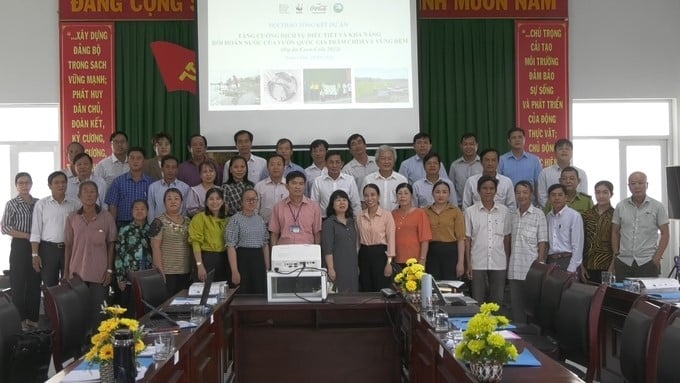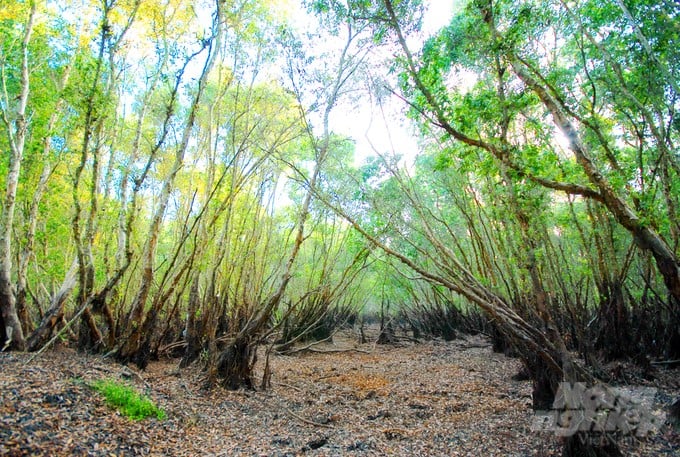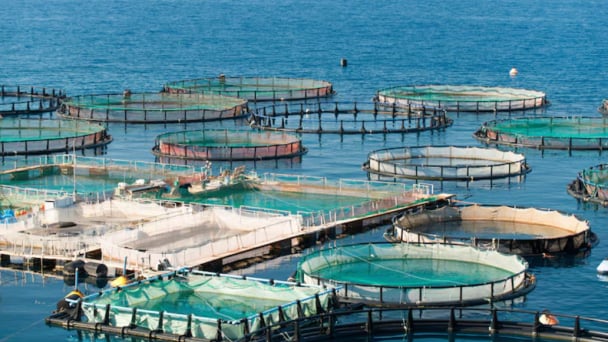June 3, 2025 | 17:42 GMT +7
June 3, 2025 | 17:42 GMT +7
Hotline: 0913.378.918
June 3, 2025 | 17:42 GMT +7
Hotline: 0913.378.918

Delegates attended the workshop on March 28 in Tam Nong District, Dong Thap. Photo: Tran Trong Trung.
On March 28, the Representative Office of the World Wide Fund for Nature in Vietnam (WWF-Vietnam) coordinated with Tram Chim National Park to hold a workshop in Tam Nong district, Dong Thap. The event aims to evaluate the results of the project "Strengthening regulatory services and water reclamation capacity of Tram Chim National Park and its buffer zone."
Located in the Mekong Delta's upstream region, Tram Chim National Park is currently one of Dong Thap Muoi’s last remaining wetlands. Recognized as a national park in 1998, with an area of nearly 7,500 ha, Tram Chim is part of a special-use forest system and also considered a typical wetland conservation area. Especially this park has more than 130 different species of vegetation, 231 species of waterfowl belonging to 25 lines and 49 descents, and many precious bird species such as Cairina scutulata, Phalacrocorax carbo, Sarus crane, etc. The Sarus crane, one of the rarest species, often comes here to search for food and live in the dry season.
Tram Chim National Park has been recognized worldwide as a Ramsar wetland because of its international importance in terms of biodiversity and nature conservation. Mr. Prasana De Silva, General Director of the WWF Global Office, said, "Tram Chim National Park in Dong Thap province is very important, not only to this province but also to the Mekong Delta’s downstream provinces, not only to Vietnam but also to the world. As an important part of the world's biosphere, this heritage should continue to be maintained and developed".
However, climate change-related events such as floods, droughts, forest fires, erosion, landslides, influenza epidemics, and invasive alien species have impacted the national park’s biodiversity. These negative impacts contribute to the degradation of biodiversity, increase the risk of numerous plant and animal species’ extinctions, and make rare genetic resources disappear.

Tram Chim National Park covers an area of nearly 7,500 ha, located in the Dong Thap Muoi region. Photo: Le Hoang Vu.
As a response to climate change in the area, WWF-Vietnam cooperated with the Coca-Cola Foundation to implement the project “Strengthening regulatory services and water reclamation capacity of Tram Chim National Park and its buffer zone" in 2022 to research solutions based on nature, making full use of Dong Thap Muoi regions’ flood water, creating livelihoods for many households living in the buffer zone, as well as supporting the maintenance of water reclamation functions in the core and buffer zones of the Tram Chim National Park.
The project is funded by the Coca-Cola Foundation with VND 3.345 billion through WWF-Vietnam and has been implemented from 2022 to the present. It can be seen that the project has contributed to the maintenance of natural ecosystems, conservation, sustainable use, restoration, and assurance of adaptation and resilience to the impacts of climate change in Tram Chim National Park and its buffer zone. The project has also helped to stabilize or increase populations of endangered species, reduce impacts from human activities, halve greenhouse gas emissions, and support community welfare, etc.
The delegates highly appreciated that the project had helped the ecosystem of Tram Chim National Park and the buffer zone to recover, researched new water levels for the park, and helped people access new livelihood models such as rice production combined with fish farming, lotus cultivation combined with fish farming, palanquin farming, etc. These project activities contributed to increasing income and protecting the environment by reducing the vegetation layer to prevent forest fires, encouraging the growth of heirloom trees to attract cranes, etc.
According to many delegates’ suggestions, WWF-Vietnam should continue to sponsor biodiversity conservation and consulting and research activities such as: cutting some more of Tram Chim National Park’s dykes to clear water sources; managing and regulating water; restoring floodplains and fields in flood season around the Park; supporting livelihood models for people in the buffer zone, etc. The representative of WWF recognized the above recommendations and highly appreciated the implementation of the project, effective use of the Coca-Cola Fund’s finances to achieve the original goal set out, etc.
From September 2022 to the end of 2022, WWF, in collaboration with Tram Chim National Park, has opened many communication classes and organized many campaigns to collect waste, cut grass to cover fields to plant palanquins, clean up fertilizer packaging and used pesticide bottles to protect the environment around the buffer zone.
Translated by Huyen Vu

(VAN) Technology is redrawing the map of Vietnamese aquaculture: more modern, greener, and more sustainable.

(VAN) Novel process harnesses machine learning to reveal groups of genes that determine how efficiently plants use nitrogen.

(VAN) Several scientists and farmers are experimenting with soil treatment in some key durian-growing regions such as Cai Lay (Tien Giang), Dak Song, Gia Nghia, and Dak R’lap (Dak Nong).
/2025/05/25/4127-3-073637_820.jpg)
(VAN) Thanks to the promotion from an FAO-implemented project, vegetable production in greenhouses in Moc Chau has seen strong development, from 1.5 hectares in 2021 to nearly 50 hectares in 2024.

(VAN) FAO has recently supported USD 140,000 to implement the project 'Risk mitigation human-animal interface risks through disease control initiatives in pig farming.'

(VAN) The People's Committee of Tra Vinh province has approved an adjustment to the investment policy for the Green Hydrogen Plant project, increasing its area to approximately 52.76 hectares.
![Reducing emissions from rice fields: [2] Farmers’ commitment to the soil](https://t.ex-cdn.com/nongnghiepmoitruong.vn/608w/files/news/2025/05/05/dsc08881jpg-nongnghiep-140632.jpg)
(VAN) Clean rice cultivation model in Thuong Tan commune, Bac Tan Uyen district, is assisting local residents in achieving sustainable agriculture by substantially reducing costs, increasing productivity, and protecting the environment.